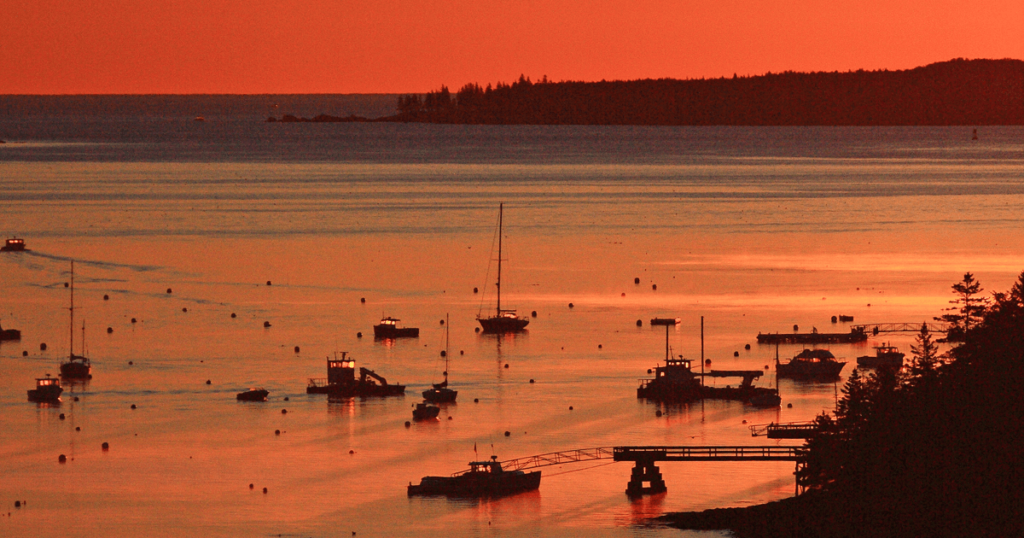
One year ago, lobsterman Richard Nelson gave the following presentation at the Maine Climate March in Augusta.
As a lobsterman, I’m often asked to comment on climate related subjects since our lives are linked to the day-to-day realities of climate change. Those stories do need to be told, but somehow, in preparing to speak here, I wondered if the changes in the natural world that I am experiencing are not that much different than those perceived by a hiker, gardener, or daily dog walker. What is it about our collective vision that brings us all here today? What is it that seems to connect our very souls to our natural environment, and allows us to see these climate changes?
The discussion of what’s going on out on the water is the easy part. How the Gulf of Maine is warming at a rate higher than 99 percent of the world’s oceans, or how susceptible it is to acidification driven by the influx of nutrient-laden fresh water and atmospheric CO2. There’s also the increase of severe weather events, harmful algal blooms, sea level rise—and now we are seeking answers to the decrease in shrimp and cod fish. At the same time, we’re seeing an increase in anomalous species, such as black sea bass and red hake that have followed the warming waters northward, or the green crab, an introduced invasive species. Then there is our old standby lobster, which has us wondering if they’re coming or going or perhaps trying to do both at the same time. We are still experiencing increased lobster landings in Maine, and yet we have been informed by new research that larval settlement indexes, predictors of lobster stocks in the future, have already taken a downturn. Lobsters thrive with a certain amount of warming, which can lead to higher growth and reproductive rates, but when these same creatures reach a well-defined temperature threshold, they begin looking for another home: shifting from shallower to deeper waters, inshore to offshore, from Southern New England towards the Canadian border. We don’t know where they’ll end up, but it may not bode well for the coastal communities that rely on them.
These are the facts and figures that, although they capture our interest about climate issues, can be pondered while we’re still on the couch or sitting at the kitchen table. What is it then that would have us rise up and come to an event like this, ready to resist, and be unwilling to take a single step backward in our environmental progress? What would have us lock in, engage, perhaps even one day pick up our paddle, jump in our kayak, and head out to encumber the path of an oil-drilling platform being towed out into Casco Bay? I know for me, having spent my life fishing on Maine’s waters has engulfed me in a pervasive love for the ocean as well as for the heritage, community, and artisanal qualities of a small boat fishery. That love drives my desire to sustain the ocean and the fishery alike. It is a love that has grown steadily over the years, as if it had been seeded and tended by Mother Nature herself, nourished by repeated exposure to the inspirations and wonders she provides. I now hope that the same resources and natural beauty can be sustained and available to our children and grandchildren. In saying that, I fully realize the present economic boon of lobsters, the record landings, can and will change over time. What we would hope to pass down is more of what I would call a total ecosystem value, a great part of which can be measured in those soul–sustaining qualities we have all experienced in nature. For this is what brought us here today.


